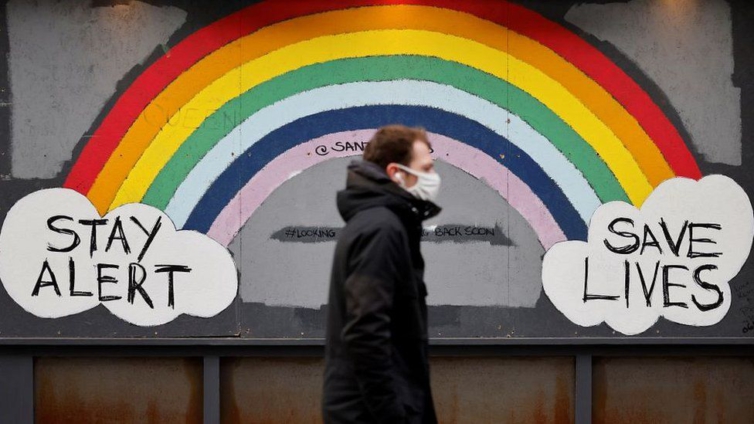The UK's epidemic is still officially estimated to be growing, according to the latest R number, but data suggests new cases are beginning to fall.
The UK's R number - which takes into account cases, hospitalisations and deaths - is estimated to be between 1.2 and 1.3.
This suggests the total number of people with the virus is still rising across the UK.
Early signs of UK lockdown restrictions working as data suggests new cases beginning to fall https://t.co/bsKQCaASvT
— BBC News (UK) (@BBCNews) January 15, 2021
But in London, where tight restrictions came in earlier, the R number is lower.
In the capital, the estimate is between 0.9 and 1.2.
It comes as a further 1,280 people with coronavirus have died in the UK within 28 days of a positive test, taking the total to 87,291.
The latest government figures on Friday also showed another 55,761 new cases had been reported.
Meanwhile, more than three million people in the UK have now received the first dose of a vaccine - latest figures show the number at 3,234,946.
Although the number of people sick with coronavirus is growing in the UK, data from various sources suggests new infections are declining.
This provides early signs that lockdown restrictions may be taking effect.
The R number is a way of rating coronavirus or any disease's ability to spread. In theory, it describes the number of people that one infected person will pass the virus onto, on average.
In reality, though, the government's estimate of R gives a wider view of the epidemic's general trend since it also looks at what is happening in hospitals.
Data from the Covid symptom study app gives its own estimate of 0.9 for the virus's R or reproduction number. This is based on cases alone, rather than a wider number of data sources included in the official estimate.
While this leaves out the fact that hospitals are still filling up, looking at cases on their own allows assessment of whether lockdown restrictions are working.
But the large number of infections recorded at the end of December and the beginning of January means, despite receding cases, hospitalisations and deaths will inevitably continue to rise for some time.
A ban on travellers from South America, Portugal and Cape Verde entering the UK came into force on Friday as a result of a new, potentially more infectious strain linked to Brazil.
Prof Wendy Barclay, a scientist at Imperial College London advising the government, said this "variant of concern" had not been detected in the UK but another variant from Brazil was already in circulation.
It is not clear whether this second strain is more contagious or not.
Latest Stories
-
Erroneous to think my role as Torkornoo’s lawyer affects injunction application against removal – Godfred Dame
2 minutes -
CJ Torkornoo is ‘merely barking’ – Ansa-Asare on injunction to stop removal probe
4 minutes -
Ghana Athletics sets roadmap for junior and senior athletes ahead of August nationals
24 minutes -
You will not lose any value after restructuring of MobileMoney Limited – MTN Board Chair assures shareholders
25 minutes -
Decongestion exercise is long-term, not temporary – Accra Mayor
38 minutes -
Joy Prime’s Big Chef Junior Team surprises Serwaa Bonsu at school
43 minutes -
Ag. NPA CEO pays courtesy call on former US Ambassador
47 minutes -
Ghana Immigration Crackdown: Deportation of undocumented foreign beggars
48 minutes -
Cedi appreciation: Gov’t’s expenditure misalignment must be investigated – Gideon Boako
53 minutes -
Ghana needs $562bn for full energy transition by 2070 – Energy Ministry
1 hour -
Suspended CJ Torkornoo files injunction against committee probing her removal
1 hour -
Photos: AMA demolishes illegal structures, uncovers ‘Lucifer Village’ on day 2 of decongestion exercise at Circle
2 hours -
JHS pupil dies in galamsey pit after being chased by security at Pramkuma
2 hours -
AMA uncovers ‘Lucifer Village’ at Nkrumah Circle: Brothels, bars, illegal structures built over gutters
2 hours -
Cedi gains unsustainable without real sector growth – Prof Lord Mensah warns
2 hours

